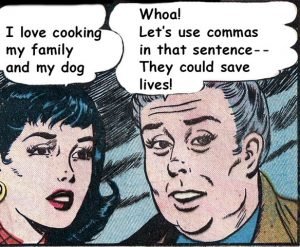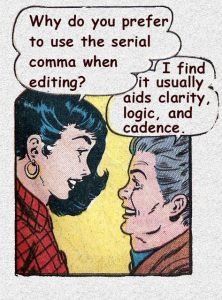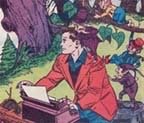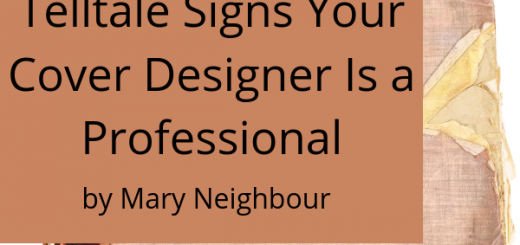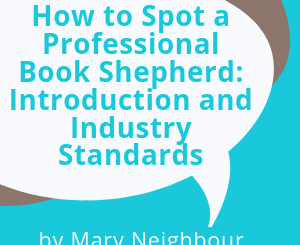How to Spot a Professional Editor: Questions to Ask Your Editor before Hiring by Mary Neighbour
 Please welcome back guest author Mary Neighbor as she shares with us “How to Spot a Professional Editor: Questions to Ask Your Editor before Hiring.” Enjoy!
Please welcome back guest author Mary Neighbor as she shares with us “How to Spot a Professional Editor: Questions to Ask Your Editor before Hiring.” Enjoy!
***
Having invested so much time, hard work, and skill into the creation of your manuscript, you may want to rest on your laurels a bit. But when you feel recharged, put focused energy into the editing process.
BEFORE YOU HIRE AN EDITOR
Interview several editors and ask them to edit a sample of your work. Compare these.
Hiring the wrong editor can waste precious time and money. Of course, few editors set out to deceive authors. Most will sincerely endeavor to help you make your manuscript better. But wanting to help is not the same as being able to help, is it? And making the manuscript better is not the same as making it the best it can be.
To help you determine whether a freelancer is a professional—and whether she’s got the right experience for your book—you need to ask her questions to assess her level of experience and expertise, because you cannot spot a true professional just by looking at her. Your editor may not, for instance, wear her hair in a bun.
Questions to Ask Your Editor before Hiring
So, how do you determine which editor is best for you? First, start with my list of “telltale signs” from last week’s blog and turn each of those indicators into an interview question.
For example:
Telltale sign: The editor consistently applies the rules about representing numbers in text.
Question for editorial candidate: How would you handle numbers in my manuscript? Would you use figures? Words spelled out? And what about representing numbers in dialogue?
Listen for: The editor probably will reference the one-to-ten (or one-to-hundred) rule, and then state where she stands on that. She will likely mention that these rules shift when dialogue (spoken or thought) is used.
Telltale sign: She really, really understands commas; she admires the way punctuation helps writers control the story.
Question for editorial candidate: I struggle with slowing the pace down in certain spots and speeding it up in others. Can you help me with that?
Listen for: Commas are one way to control the pace of a sentence. The editor probably will also speak knowledgeably about semicolons, dashes, and ellipses. With luck, she’ll go on to describe other ways, not involving punctuation, that achieve the goals of pacing.
Tip: The editor probably will reference the “serial” (or “Oxford”) comma. She’ll likely mention where she stands on this rule—and why.
10 Other Questions to Ask Before Hiring An Editor
Beyond technical questions like those above, here are ten other questions you might want to explore with a freelance editor. These will help you select the best candidate as well as define your working relationship:
- How do you decide whether or not to take on a project?
- Have you previously edited books in my genre? I’d like to check a couple of those references.
Recommended: In addition to speaking with the other author, also look inside his or her book and see if they acknowledged the editor. Most authors will give credit where credit is due. If they don’t, ask why.
- Have any of the books you’ve worked on won awards?
Recommended: Don’t dismiss a prospect if she answers in the negative. However, extra points should go to an editor who has helped an author win an award.
- Do you offer free editing of sample pages, so I can see how we might work together?
- Will you give me a written estimate for the work to be performed and the time it will take to complete?
Tip: A discussion limited to what an editor charges per hour (or per project) can be woefully misleading. Consider that one editor may be able to edit eight pages per hour, while another may only complete four. Obviously, if they charge the same hourly rate, you’d pay less to the one who edits at the faster pace.
But is her work as competent and as thorough as the one who works more slowly? Ultimately, you want a great edit, so pace is not the only issue. Breadth of knowledge is also key. The one working more slowly may catch more issues deserving attention.
Working within a budget is important, so weigh all the factors that will affect the bottom line. Again: a sample edit will answer many questions.
- What style guides do you commonly work with? Which guide will you use for my book?
Tip: The Chicago Manual of Style is an excellent guide for trade fiction and many types of nonfiction. But if you plan to release a nonfiction book to a specialty audience, your editor should follow the appropriate manual.
For example:
Medical writers will adhere to AMA style (the American Medical Association Manual of Style).
Magazines and newspapers use AP style (the Associated Press Stylebook).
Scholarly writers, particularly in the social and behavioral sciences, frequently employ APA style (the Publication Manual of the American Psychological Association).
Government publications recommend the GPO style (the United States Government Printing Office Style Manual).
- Do you recommend a read-through of the manuscript before beginning the editing?
Listen for: Again, there’s no right or wrong answer here. But listen for the editor’s thinking on this matter. Often, the editor’s answer will reflect (without explicitly saying so) her own evaluation of the writer’s level of craft. In my own experience, more seasoned writers don’t need me to do a read-through. Less experienced writers may be tripping up the manuscript in a number of ways, and so I want to do a read-through.
- Do you mark up a digital copy or a hard copy?
Tip: Explore this issue thoroughly, especially if you are on a deadline. The method of exchanging versions of the manuscript can alter or influence the pacing of the project.
For example, I work more swiftly using a computer than using a hard copy. When writers want my input on hard copy, I let them know it will take a bit more time.
- In addition to a style guide, do you consult a usage guide?
Listen for: Few editors, myself included, consult a usage guide, as most style manuals include guidance on usage. Nevertheless, I suggest this query as a sort of trick question. It may shed light on the editor’s experience. If she doesn’t know what you’re asking, that’s a red flag. If she does understand, she’ll be able to reassure you that she pays attention to modes of expression as well as to grammar.
- Do you typically work with a style sheet as your proceed with editing?
Tip: Editors create a style sheet—a record of specific editorial decisions—to ensure consistency. Especially for editors who work on different genres, it’s important to keep track of which number rule is appropriate or whether the serial comma is preferred. Most professional editors will employ a style sheet, as it’s the best way to achieve . . . consistency!
Remember: most of these questions have no right or wrong answer. Yet by discussing these things with an editor, you will learn a good deal about her abilities, knowledge, and experience. Moreover, a professional editor knows the rules and is transparent about her discretionary interventions. She knows the goals of the edit, the limits of the rules, and she will be able to defend her choices.
This blog is the last in the “Editing” series. Next week we’ll turn our attention to the “Book Cover Design” series, beginning with: “Book Cover Design: Intro & Industry Standards.”
The following week: “Book Cover Design: Terminology.”
***
Mary’s previous posts are here.
***
ABOUT THE AUTHOR
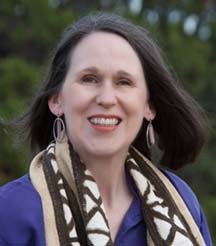 Some call Mary E. Neighbour a “book shepherd,” though Mary wields a blue pencil far more expertly than a herding rod. For the past ten years, she and her husband have helped dozens of writers bring their manuscripts to the marketplace, through MediaNeighbours, their publishing services business.
Some call Mary E. Neighbour a “book shepherd,” though Mary wields a blue pencil far more expertly than a herding rod. For the past ten years, she and her husband have helped dozens of writers bring their manuscripts to the marketplace, through MediaNeighbours, their publishing services business.
Passionate about helping authors make their work shine in the world, with a combined professional expertise of over 50 years in editing and design, this family team is one you’ll want to adopt as your guide through the challenging world of independent publishing.
Mary’s other passion is learning about the history of slavery and how it impacts race relations today. She incorporated much of her research into her novel, Speak Right On: Conjuring the Slave Narrative of Dred Scott.

